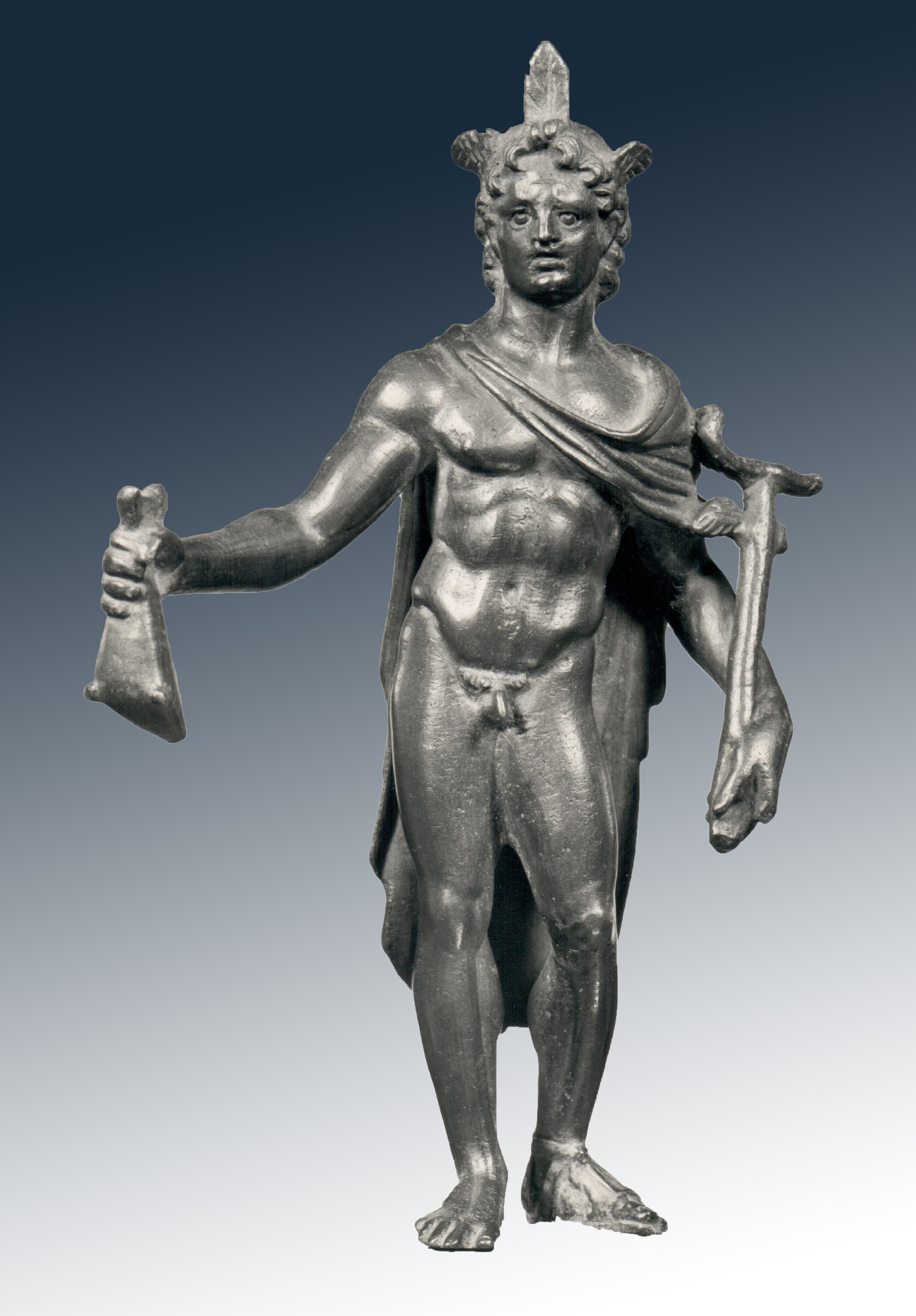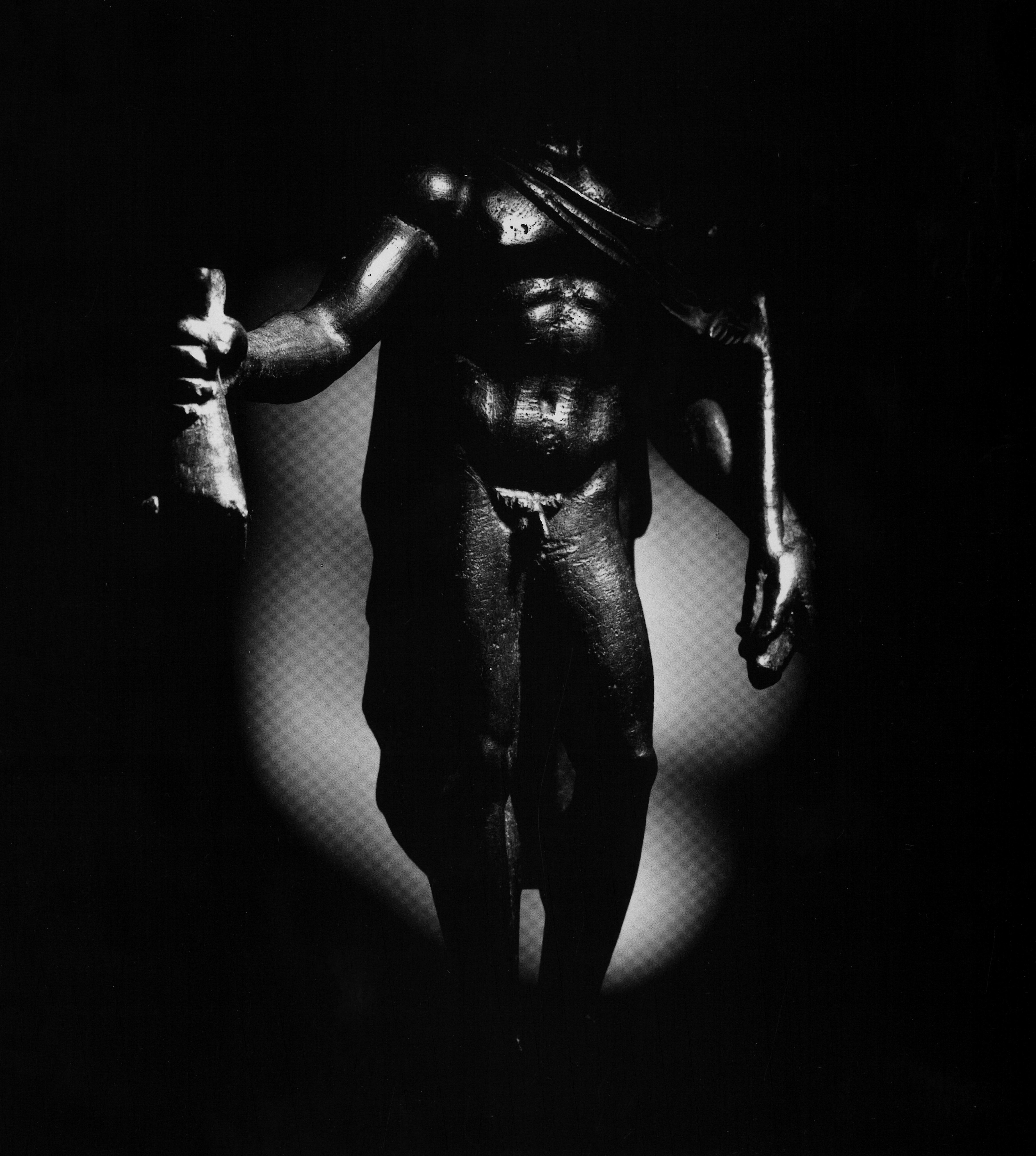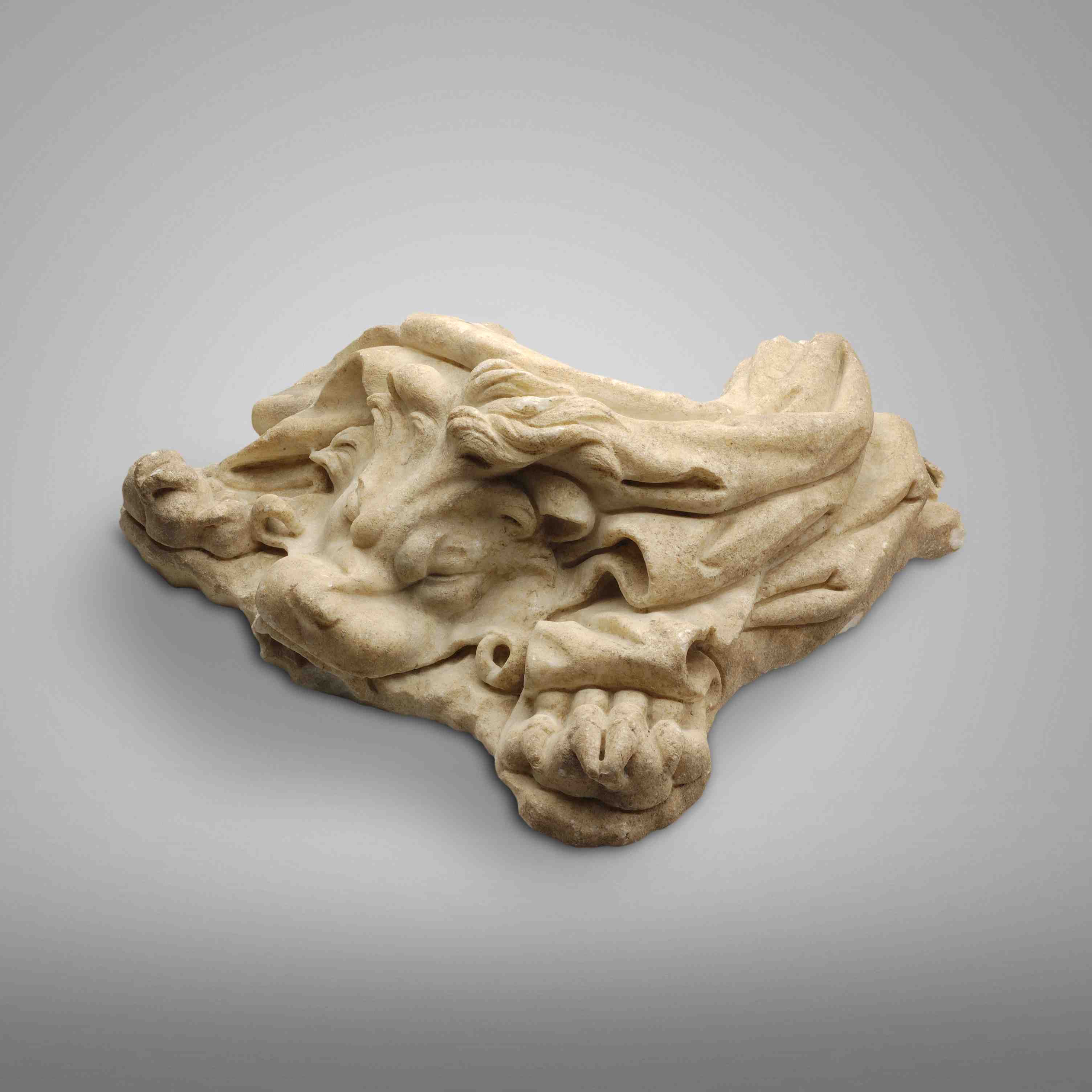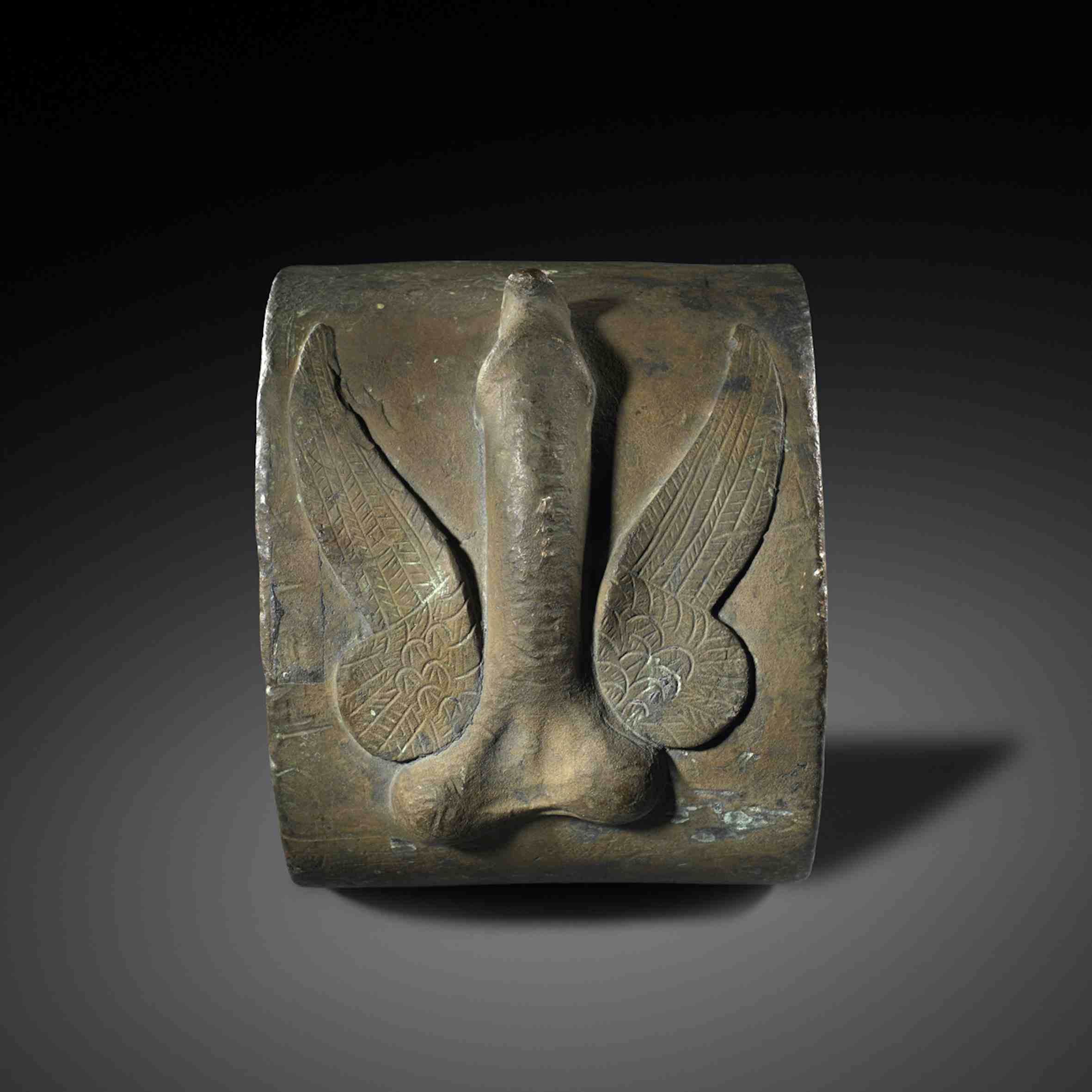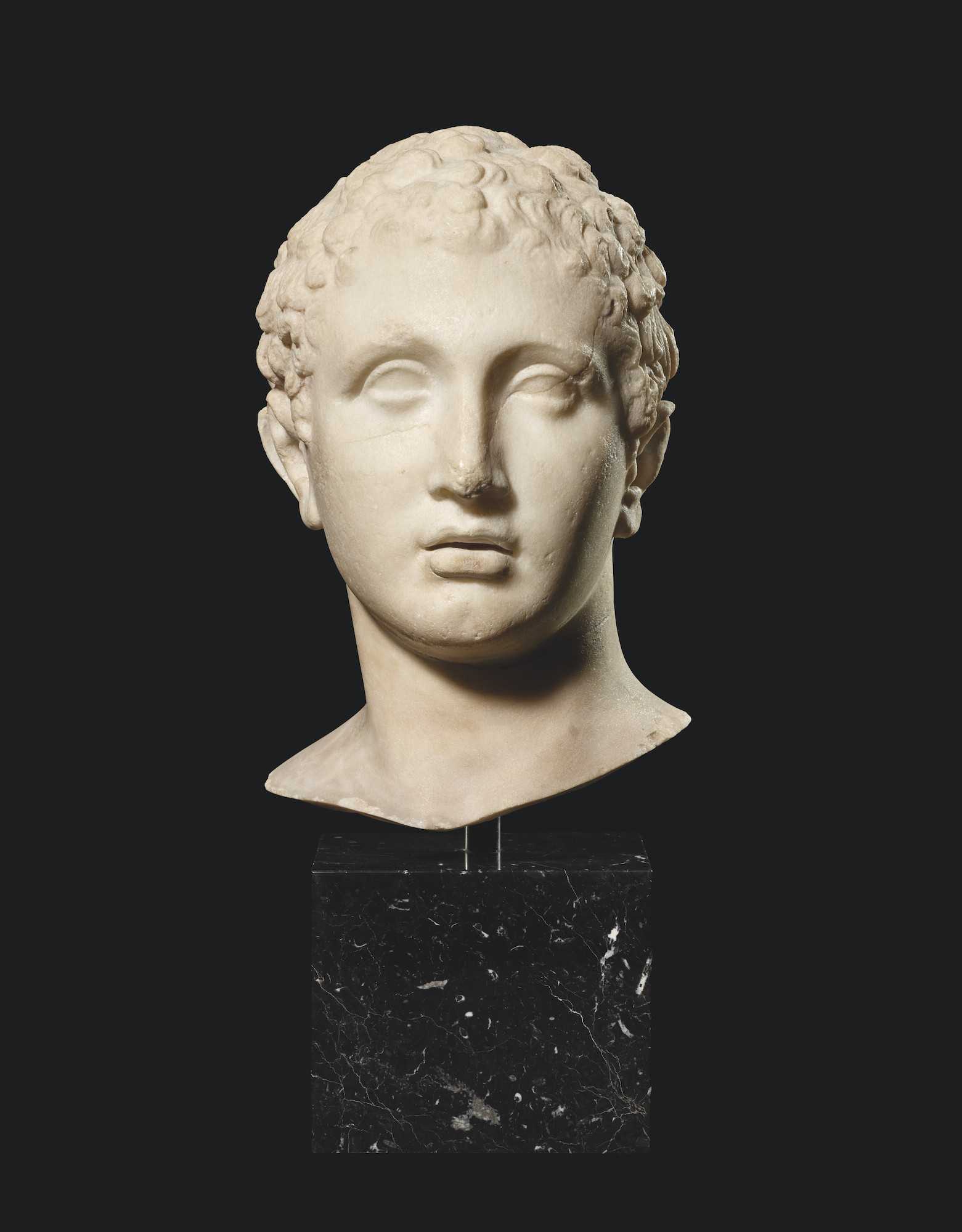The finely modeled young god stands in a relaxed contrapposto with his weight borne by his right leg and his left leg relaxed with knee slightly bent. He is shown nude but for a chlamys fastened at his right shoulder, draped across his chest, falling over his left arm, and (unusually for representations of Mercury) hanging down his back to mid-calf. His left arm is bent at the elbow and grasping the caduceus, while his right arm is extended diagonally with purse (marsupium) clutched in his hand. His head is turned slightly to the right, with wings emerging from his long curly hair which is further topped by a plume. Mounted on a later marble base
Note
In Roman religion, Mercury was one of the major gods as one of the 12 Dii Consentes within the pantheon. He was the god of financial gain, commerce, shopkeepers and merchants, eloquence, messages, communication, travellers, boundaries, luck, trickery, and thieves; he also served as the guide of souls to the underworld.
Portrayed with wings protruding from either his sandals or head, the speed that these wings gave him evidently made him a protector of any kind of travel and circulation, whether it was people, goods, or messages. Thus, this granted him the position of god of trade and commerce. He was believed to have facilitated the movement of goods and was the god to pray to when you wanted your business to succeed.
He is often depicted holding the caduceus in his left hand. Similar to his Greek equivalent Hermes, he was awarded a magic wand by Apollo, which later became the caduceus, the staff with intertwined snakes. He often carries a purse as a symbol of his duties as the god of commerce and profits.
